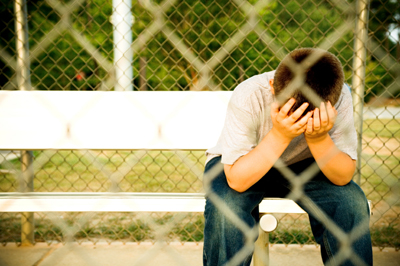Yesterday I saw many old friends from my Eagle-Tribune days at the retirement send-off for legendary editor Cheryl Rock. It was a great afternoon. But one of the people I saw there brought back the powerful memory of one of the worst things I ever did.
I didn’t talk to Sally Gilman. I guess I felt too awkward and nervous. She didn’t say anything to me, either. She probably doesn’t remember me. But what I did to her was awful.
It was sometime in late 2000 or early 2001. I was the assistant editor of the paper’s New Hampshire edition and I reported to a manging editor who made my brand of control-freakism look like a minor, passing cold. I’ll keep his name out because I’m about to say some not-so-nice things about him.
I was warned about him when I was about to take the N.H. job. One editor said I would have to play good cop to this guy’s bad-cop style. That was very good advice that I didn’t take.
Instead, I gave in to my instinct to please my masters — this particular master, anyway. His attitude was that all the reporters were children who needed their ears slapped back on a regular basis, and he expected me to carry out his will. It was against my instincts, because I wanted to be known as a nice guy. But I pushed on. When he told me to take a reporter to the woodshed because that person wasn’t performing as he felt they should be, I did.
Sally was one of those reporters who was always in his sights. It was ridiculous, because she was older and wiser than we were. She had been covering New Hampshire for many years. She lived there. We should have just let her do her thing, because it was good enough.
But he wanted more. If an idea wasn’t something you could turn into a multi-story enterprise package with seven sources per story, then it was crap. Community journalism was a mark of laziness, apparently.
He was always on Sally to come into the North Andover, Mass. office to work more often. She resisted, because New Hampshire was where the action was. She lived there. She once noted that the New Hampshire plates on her car increased her credibility with sources, and she was right.
Still, it became my job to push her to come to the office. It seems absurd in this day and age, where you can easily work from anyplace that has a wi-fi connection. But even back then, e-mailing in a story was simple enough.
But we wanted the stories inputed directly into the newsroom’s Lotus Notes-based system. We felt we shouldn’t have to reformat copy on deadline. Perhaps we were the lazy ones.
One morning, Sally filed an incomplete story. I can’t remember exactly what the problem was. But the boss was pissed off about it, and he told me to give her a kick in the ass. Her husband was having some serious surgery that day and we both knew it. But he ordered and I got on the phone and gave her a talking to.
An hour or so later, Steve Lambert, the top editor, called me to his office. I went in there to find him, my direct boss, and editor Al White. Considering what I had done, they went pretty easy on me. There was no yelling. Steve just asked me what happened and I told him. The N.H. managing editor sat there with a very red face. It was always red, mind you. But it was particularly glaring in Steve’s windowless office.
It turns out that Sally had called to complain. She was really upset. How dare an editor call her early in the morning to give her a hard time about something trivial on a day when her husband’s life was hanging in the balance.
Steve agreed with her, as well he should have. But he was still calm about it. He told me I needed to ease up. He didn’t want reporters to see me as the newsroom ass-clown. I said I’d keep that in mind and left his office, feeling like I had just been simultaneously stabbed in the side of the head and slammed in the gut with a brick.
Ten-plus years later, the way I treated her is one of my biggest regrets.
Some could try to absolve me of fault because I was carrying out orders. But the truth is that I could have stood up to this managing editor and told him that was not the day to push this poor woman.
I could have been the good cop, smoothing out the rough feelings reporters were having over his management style. It would have been insubordination on my part, but it would have been the right thing to do. Instead, I was just another bad cop, no better than he was.
I badly wanted to tell Sally I was sorry yesterday. But I couldn’t get up the courage to approach her.
I’m going to find her phone number and let her know how sorry I am.
One more note about that managing editor: I eventually reached my breaking point with him and asked for a transfer. Al sent me back to the night editor’s chair. Al was always a hard guy to read, but I think he knew I was a pile of rubble at that point, so I thank him for giving me that second chance.
One night after I returned to that position, I was asked to help the New Hampshire desk process election results from the various towns we covered. Around 4 a.m., the managing editor started to go into a diabetic shock. Another reporter called his wife and I hit the streets in search of a store that was open so I could get him some orange juice.
He later recovered enough to drive home. I stuck around and finished his work. It wasn’t hard, because I’d been left to finish his work many times.
I’m not proud of this, but there were moments after that where I would think about that orange juice I got him and regretted doing so. Maybe, I thought in my delusional mind, I could have saved reporters a lot of future suffering. Fortunately, I’m not the kind of guy who would do such a thing. If someone’s life is in danger, you help them. Pure and simple. That I had those thoughts still fills me with shame.
He’s still in the business, but I have no interest in connecting with him. The feeling is mutual, I’m sure.
In hindsight, that incident with Sally was a classic case of OCD run wild. Back then the condition hadn’t yet been diagnosed, but it was there, eating away at my brain, making me do bad things.
I don’t think I can ever apologize enough for some of the things I did in that job.
I was really coming undone at that point, but I hadn’t yet hit the series of bottoms I had to reach before I realized I needed help.
Today, the lessons are clear to me:
–Treat everyone as you wish to be treated yourself because that’s what God wants and it’s right.
–People who report to you will always do more for you if you skip the hard-ass bit and be more caring and nurturing.
–Finally, being a people-pleaser is just plain stupid, whether it’s a family member, a friend or a boss. People-Pleasing never works. You can never make everyone happy.
When you try, you do really stupid things.





